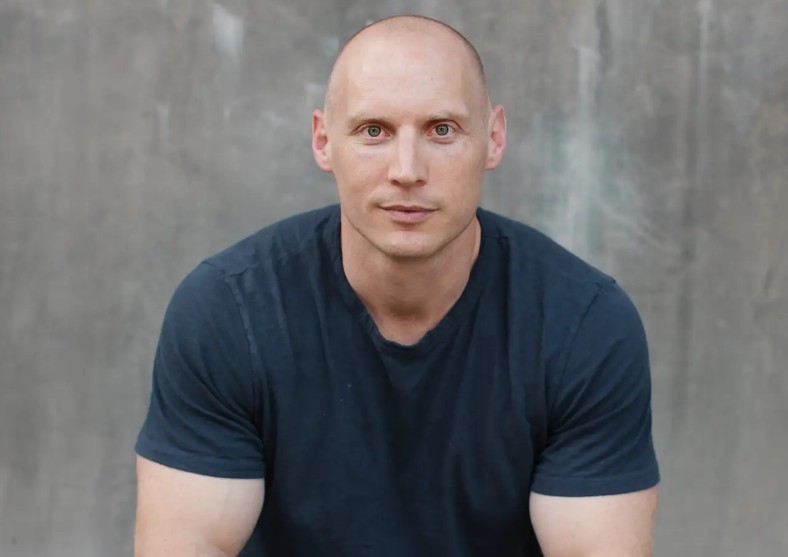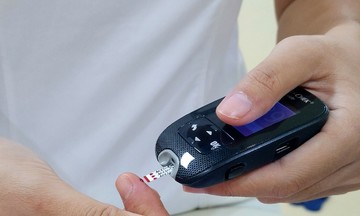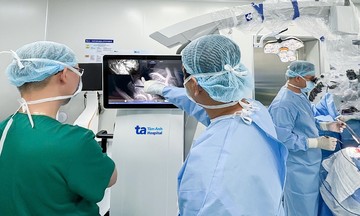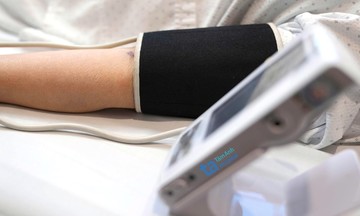Once a self-described gym rat focused on heavy weights and supplements, 41-year-old Dugal Bain-Kim's life took a dramatic turn after his father's death from Alzheimer's. Now, his habits revolve around one goal: preserving his brain health.
"When I was younger, I had more time to experiment with different health approaches," Bain-Kim, CEO and co-founder of the longevity startup Lifeforce, explains. "Now, life is busier, so I need to be efficient and focused on my most important goals."
Last year, Bain-Kim faced the harsh reality of his father's Alzheimer's diagnosis. His father's condition deteriorated rapidly, leading to his death at 70. Aware of his genetic predisposition, Bain-Kim decided to make significant lifestyle changes to protect his brain.
"Many people mistakenly believe that Alzheimer's and dementia are like being struck by lightning—simply bad luck, and there's nothing we can do," Bain-Kim says. "But having this knowledge can motivate someone to change their lifestyle."
To improve his health, he adopted several new habits, from microdosing GLP-1 medication to incorporating daily exercise.
 |
Dugal Bain-Kim, CEO of Lifeforce. Photo: Dugal Bain Kim
Bain-Kim is skeptical of many supplements promising longevity and brain health. "Generally, people are taking too many supplements," he states. But he believes creatine is a notable exception. Primarily a bodybuilding supplement for muscle growth, creatine may also offer brain-protective benefits.
Creatine, a compound of amino acids produced naturally by the body, supplies energy to tissues like muscles. Athletes have long used it as a supplement to replenish energy stores, thereby promoting muscle growth. Emerging research suggests creatine may have a similar effect on the brain, providing brain cells with additional resources to combat cognitive decline and stressors like sleep deprivation. Bain-Kim says he takes creatine daily, along with protein powder and glutamine for joint health.
Popular drugs like Ozempic and Wegovy belong to the GLP-1 drug class. They primarily affect hormones to control appetite and metabolism. However, growing research indicates they may offer significant brain benefits.
Bain-Kim is particularly interested in new research suggesting these drugs may help prevent cognitive decline. Recent studies link GLP-1 drugs to a reduced risk of dementia, potentially slowing brain shrinkage and age-related thinking problems. This prompted Bain-Kim to explore microdosing a GLP-1 drug himself.
The evidence is clear: a healthy body supports a healthy brain. While still lifting weights, Bain-Kim now emphasizes cardio. A healthy heart and circulatory system are crucial for long-term brain health. Specifically, exercises like jogging or cycling at a low heart rate (known as Zone 2) can strengthen and improve heart endurance.
Bain-Kim added two light cardio sessions per week to his routine. To round out his weekly exercise, he regularly plays pickleball, as the high-intensity activity boosts VO2 max, improving fitness and potentially extending lifespan.
Bain-Kim is also optimizing his diet for cognitive health. He refined his already healthy Mediterranean diet to focus on brain-protective foods. His new regimen is based on the MIND diet, developed by Harvard researchers to help prevent cognitive decline. This diet emphasizes nutrients like fiber and healthy fats such as omega-3s, with weekly targets of: at least 6 servings of leafy greens; 5 servings of nuts; 4 servings of beans; 2 servings of berries; and at least one serving of fatty fish (salmon, tuna, sardines), using olive oil as the primary cooking oil.
Beyond exercise and diet, quality sleep is fundamental to Bain-Kim's daily routine. He identifies his "golden threshold" for peak performance and health as around 7 hours and 45 minutes of quality sleep, not just time spent in bed. Neurologists recommend 7 to 9 hours of sleep per night.
"Everyone understands the value of good sleep, but for me, it's now central to my strategy because of its brain-protective benefits," Bain-Kim says. "It's become non-negotiable."
Binh Minh (Business Insider)












